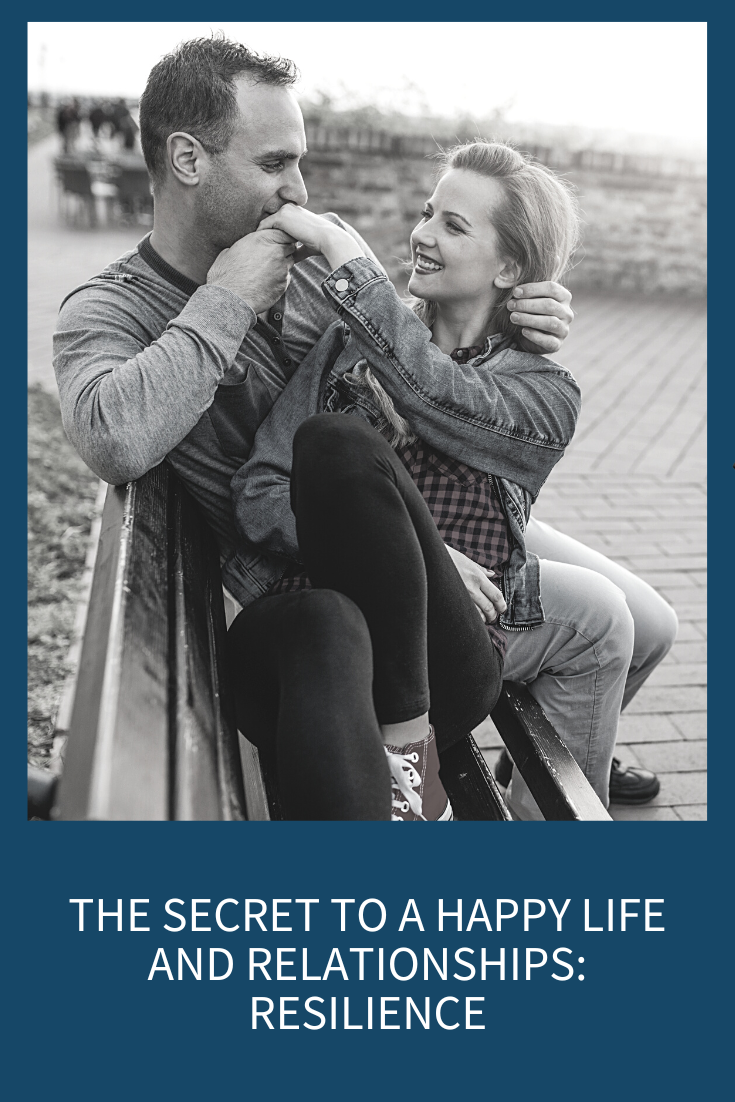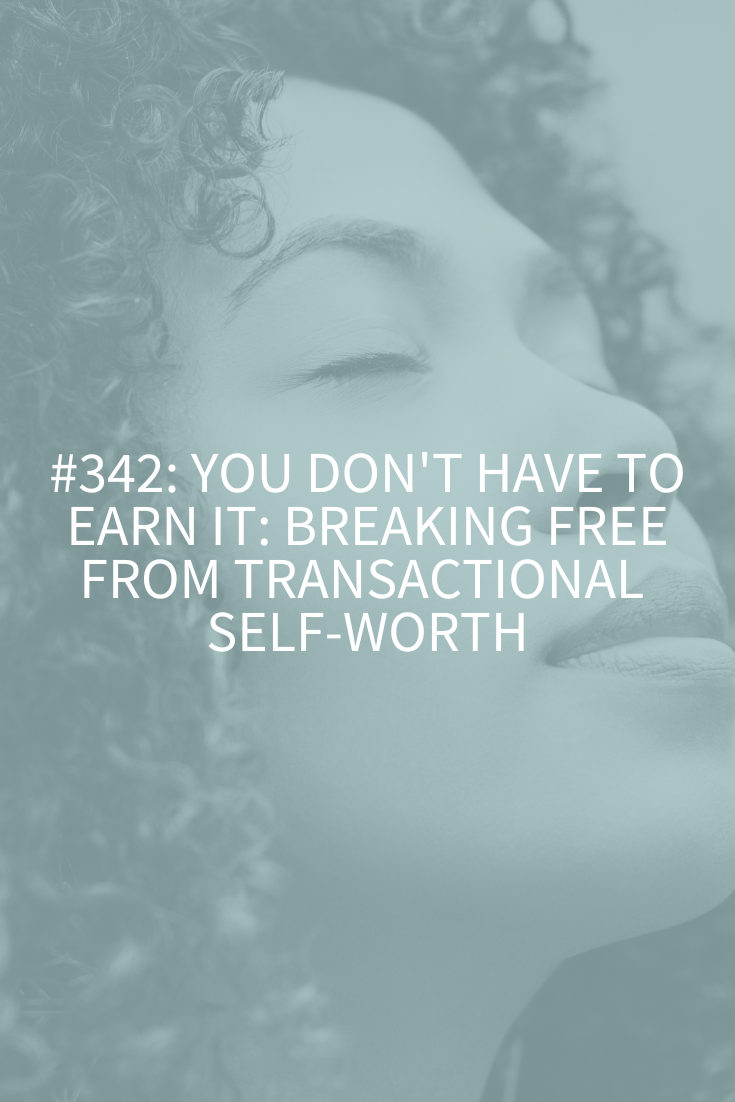
Today I’m celebrating the 250th episode of the Relationships Made Easy Podcast, and I’m closing out our fifth season with some big love! Today you’re going to learn one of the foundations of a happy, fulfilled life rich with confidence, connection, and ease: resilience. The good news is that resilience is a skill you can learn, and people in resilient relationships report more ease, satisfaction, contentment, physical health, and connection. So, hang out with me today while I break down what resilience really is, why you need it to be happy, and my top tips for making it happen!
11-min read
Is Resilience Really That Important?
Resilient people feel good about their relationship and their lives as a whole. They cope better with money issues, health crises, fertility and child-rearing and mental health issues like PTSD, depression, and anxiety.
There’s a ton of research showing that, even after experiencing tragedies and hardships, resilient folks have reported:
- Better relationships,
- More self-confidence and strength even when they’re feeling exposed and vulnerable,
- A more developed spirituality,
- An increased sense of self-worth, and
- An overall appreciation for life.
Resilience works for couples too. Resilient couples have confidence that they can get through the tough times or whatever conflict may arise, so they’re less stressed, closer, and more comfortable with one another. The deep trust is there, so true intimacy and emotional closeness are higher. In fact, resilient couples come through difficult times stronger and closer than they were before. They learn from what’s hard and use it to make their foundation stronger!
What Exactly is Resilience?
Resilience is a skill; you’re not born with it. Like any skill, it has some main components, and the more you practice and get good at those core components, the more resilient you’ll be. Psychologists define resilience as “the process of adapting well in the face of adversity, trauma, tragedy, threats or significant sources of stress — such as family and relationship problems, serious health problems, or workplace and financial stressors.”
To me, the real win with resilience isn’t just the ability to “bounce back” but the way I grow and learn from tough crap that happens to me. It’s not like I’d wish it on myself (duh?!?), but since it happened, what did I learn? It also helps me get through the next tough thing because I can remember that I did it once before, so I can do it again. I end up feeling empowered instead of exhausted or hopeless. Then that becomes its own positive cycle.
Being resilient isn’t about ignoring the bad and just focusing on the good like some crazy Pollyanna. It’s about leveraging your negative thoughts and feelings and creating positive adaptations to the negative stuff that will eventually happen (because that folks, is life). It’s when I see that my butt has gotten too big for my pants but, instead of getting depressed, I get fired up to start working out harder (because I know I can change it). It’s when you argue with your partner for the 100th time about their drinking but, instead of feeling hopeless that nothing will ever change, you get yourself to therapy and start going to Alanon. It’s when your boss is an asshole (again) and, instead of entering a downward spiral of despair, you think about what you need to learn from this relationship and start working on your resume tonight!
As Mark Manson says (and this is my favorite quote of all time about resilience), “It’s turning lemons into a fucking pina colada.”
The Four Components of Resilience
I’m going to teach you each one right now and give you tips and ideas for how to incorporate these into your daily life.
I. People Connection
You know I talk nonstop about connection! It’s my jam, AND it’s one of the best predictors of resiliency in children and adults: connecting to other people. There are lots of ways to connect and lots of people to connect with. Let me start with talking about your partner, and then we’ll go from there.
I’d say the easiest way to connect with your partner is to focus on bids. I’ve talked all about bids, but to quickly recap, it’s basically noticing any time that your partner makes a bid for your attention and answering it in some way. If your partner says, “This cat video is so funny!” Don’t roll your eyes; instead, walk on over and watch it with them. If your partner says, “Try this sauce I’m making.” Don’t dismiss them with, “I’m sure it’s good,” and walk out of the kitchen. Instead, go in there, taste it, and make all those appreciative noises. If they say they want to talk, you guessed it, give them your full attention and talk!
You could also branch out to other people like your kids, siblings, parents, or friends. Make plans to connect with them, whether that’s joining in on that coloring book with your five-year-old, shooting some hoops with your brother, or getting on a Zoom happy hour with your best friend who just moved away.
There are other ways to connect also. Think of volunteering, joining a running group, or doing a Meet Up. For those of us in recovery, there are always 12-step meetings and other support groups depending on your particular struggle. Maybe it’s time to start a book club—anything that’ll bring you closer to those you care about. Or, you could go to your local temple, church, or mosque and get connected!
II. Physical Well-being
Feeling strong in your body and mind will absolutely help you feel more resilient. This doesn’t mean you need to be some CrossFit junkie who only eats bark. But it does mean that you need to take a minute and be respectful of your physical well-being.
Eating junk food constantly isn’t respectful. Being so out of shape that you make lots of noise when you get off the couch isn’t respectful. Ignoring your need for sleep is not respectful. Not taking breaks during the day and working nonstop is not respectful. Smoking nonstop is not respectful. Drinking too much booze is not respectful. Again, I’m not talking about needing to be on a strict diet and workout regime, although that’s fine if it works for you (and I’ll try not to hate you). I’m talking about being mindful and kind to your physical needs every day or as consistently as possible.
So, move a little every day. Just do anything, even if it’s a quick walk around the block. Get out there and move. Ask yourself some important questions: How’s your sugar intake? Are you drinking too much? How many hours of sleep are you getting?
I don’t diet per se, but when I notice that I’ve tacked on some extra weight (as I recently have), I start to focus on adding healthy foods first. This usually keeps the junk food at bay. Once I start restricting too much, I get crazy, but do what works for you!
Next, you’ve got to get that mind in line. Calming your mind is key to finding the space to act and not react to situations, people, and events in your life. There’s nothing better and quicker than focusing on mindfulness and making it a daily habit.
The other thing I do to keep my life feeling calm and to help me put things in perspective is to lighten the fuck up! Life does NOT need to be so heavy. I look for the joy and humor as often as possible. It’s so much easier to bounce back when there’s some lightness.
Humor always helps me keep things in perspective. It helps me feel differently in a given situation and be more resilient when the tough stuff comes up. Get out of that all or nothing thinking or thinking the world is out to get you in some way (please, the Universe is too busy to try to trip you when you’re walking to the kitchen). Your expectations and your perceptions in a given situation are almost always the thing making you unhappy and feeling defeated. You can’t change what’s happening likely, but you can always be in charge of how you respond to it.
III. Healthy Thinking
Calming your mind, as we just discussed, is great, but what happens next? Getting calm doesn’t mean negative thoughts stop. In fact, sometimes when we’re quiet, those thoughts get the loudest. So, you’ve also got to work on changing your stinking thinking (as we say in the 12-steps).
There are a few tools I want to mention here:
A. Learning to be Optimistic
Dr. Dennis Charney at the Mount Sinai School of Medicine studied a large group of Vietnam war veterans who’d been prisoners of war for at least six years. Although these men had survived things you can’t even imagine, including unspeakable torture and solitary confinement, he found that they were remarkably resilient. Unlike other veterans who developed post-traumatic stress disorder, severe depression, drug and alcohol addiction, and anxiety, these men didn’t.
Charney and his colleagues conducted extensive interviews and testing with these men to see what made them different, and they identified ten characteristics that set them apart. At the top of that list were optimism, altruism, having a sense of humor, and having meaning in their lives. But optimism was, far and away, the most important.
Having a positive outlook is the most important predictor of resilience. When things happen to you, you have an internal dialogue and way of explaining these events to yourself. It’s what Martin Seligman of the University of Pennsylvania and the “father” of optimism research, labeled as Explanatory Styles.
For example, let’s say you’re brushing your teeth in the morning, and toothpaste spills down your shirt. You might say to yourself, “I’m such a klutz! I’m always doing stuff like this! What’s wrong with me?!” or you might think, “Oops. Oh well, I guess I’ll change into my blue shirt. That looks better on me anyway!” Both of these are ways of explaining to yourself what happened with the toothpaste, but as you can see, they’re very different explanations and will affect your self-concept differently.
Learning to build optimism is a key to being more resilient.
B. Correct or Effective
I talk about this one a lot. You’ve got to decide in all your interactions if you want to be correct or effective because you can’t be both. Yes, you might be correct that your partner should be willing to go to therapy with you, but nagging them about it doesn’t get you where you want to go.
You want to think about how to be effective in this situation. If your partner won’t go to therapy, you could go and work on yourself. You could investigate other ways to make changes in your relationship that don’t rely on their actions (gasp! I actually wrote a book on this subject)!
Want to feel happier and more connected in your relationship? Buy my #1 bestselling book on Amazon, Be Happily Married: Even If Your Partner Won’t Do a Thing!
C. Take Full Responsibility
And this leads beautifully into my next tip for healthy thinking, which is that you must take full responsibility for your life. The whole thing! How do you know you’re doing that? By making sure you’re NOT doing any of the following unhealthy behaviors, I want you to remember to use the acronym VERRB:
Don’t be a Victim, act Entitled, think you can Read anyone’s mind (or expect anyone to read yours), wait to be Rescued, or Blame anyone else for your lot in life. Taking full responsibility for your life is at the heart of resiliency.
What VERRB adds up to is making sure that you’re taking regular action to move towards your goals. There’s no waiting for someone else to do anything. Think of that one thing you can do, that one action you can take – no matter how small – to move towards where you want to be and how you want to feel.
IV. Meaning
Last but not least, if you want to be more resilient, you’ve got to find meaning in your world.
Obviously, helping others and volunteering is an easy way to get this job done. When I’m upset, nothing helps me get my head out of my ass more than helping other people. Talk about a quick way to put things into perspective and stop taking myself and my life quite so seriously. There are always bigger fish to fry.
This does not mean that you don’t feel bummed, hurt, angry, or upset. It means you don’t wallow in it. Feel all the feelz, and really go there, but then it’s time to reframe a bit. Finding meaning for what’s happening is an important way to bounce back from it.
The meaning might be something spiritual or religious for you. “It’s God’s will” or “Change is a constant in the Universe.” If saying these kinds of mantras to yourself helps put things into perspective, then keep doing that!
For others, these types of statements feel like bullshit platitudes. For you, I’d say to ask yourself, “If life is always happening for me, not to me, what am I learning here?” I want you to assume this happened for a reason. It might not be a reason you like, but a reason, nonetheless. What can you take away from what happened?
Steve Jobs famously said, “Again, you can’t connect the dots looking forward; you can only connect them looking backward. So you have to trust that the dots will somehow connect in your future. You have to trust in something — your gut, destiny, life, karma, whatever.”
Resources for The Secret to a Happy Life and Relationships: Resilience
How to Be Honest and Build Trust in a Relationship
Improve Your Relationships by Making and Answering Bids
Why Sleep is the Secret to Great Relationships
How to Make Mindfulness a Habit
Your Expectations Are Making You Unhappy
How to Stop Overthinking and Let Things Go That Bother You
Be Happily Married: Even If Your Partner Won’t Do a Thing by Dr. Abby Medcalf
Research for The Secret to a Happy Life and Relationships: Resilience
Resilience, American Psychological Association
5 Ways to Build Resilience and Conquer Adversity, Mark Manson
Resilience: The Science of Mastering Life’s Greatest Challenges by Steven M. Southwick and Dennis S. Charney
Esfahani Smith, Emily. “The Benefits of Optimism Are Real,” The Atlantic, March 2013
Learned Optimism: How to Change Your Mind and Your Life by Martin E. P. Seligman
‘You’ve got to find what you love,’ Jobs says, Stanford News








